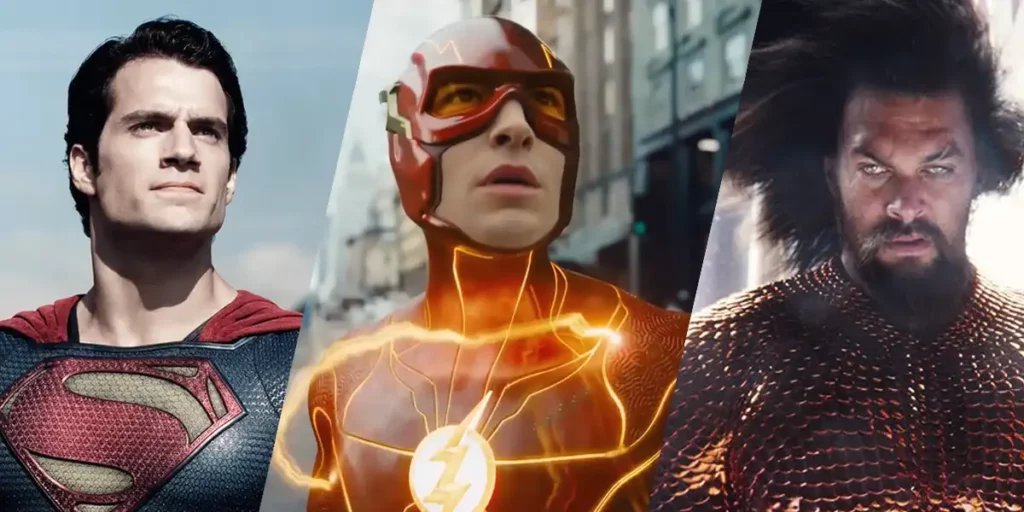The DC Extended Universe, or DCEU, has come to a close. What did it do right, what did it do wrong, and most of all, how was its potential wasted?
The DC Extended Universe. The DCEU. The Snyderverse plus others. Whatever you want to call it, Warner Bros.’ cinematic universe of DC superhero films has officially come to an end. What started just before I entered college ten years ago with a single Superman film has bloated into a series of successes, failures, behind-the-scenes drama, constantly changing trajectories, and comic book fans being the most wholesome, civil, mature people when discussing their issues with- okay, I couldn’t even finish that sentence.
I’ve gone into detail regarding my thoughts on the Marvel Cinematic Universe in an article that’s proven to be ahead of the curve considering where that franchise is now. But the DC Extended Universe, the closest thing to a true competitor to the MCU, is a different beast entirely when it comes to the filmmaking, strategies, and especially the films’ reputations. Unlike the MCU, which ended up containing subsets of films that all came together to tell one epic story, the DCEU is a set of initially connected films that then just sort of did their own thing, then tried to connect together again, then seemed to have one foot in each of those doors … There’s not one singular way you can clump them all together.
But to try and sum up my own overall thoughts on the DCEU: I think it had tons of wasted potential at several different points and for several different reasons. All the way back from 2013’s Man of Steel, to the end with 2023’s Aquaman and the Lost Kingdom, I can very easily see how the DCEU could have become something truly special that competed with or even surpassed the MCU … and, briefly, I think it actually did. And I believe the blame for its ultimate failure lies with both the studio and the fans.
How and why? Let’s find out. Because I’m a hypocrite who says I have superhero fatigue and yet keeps writing articles about superhero movies, I’ll take you through each stage of the DCEU and discuss what I believe it did right, what it did wrong, and most of all, its wasted potential.
AN UNEVEN START WITH ZACK SNYDER’S DCEU FILMS
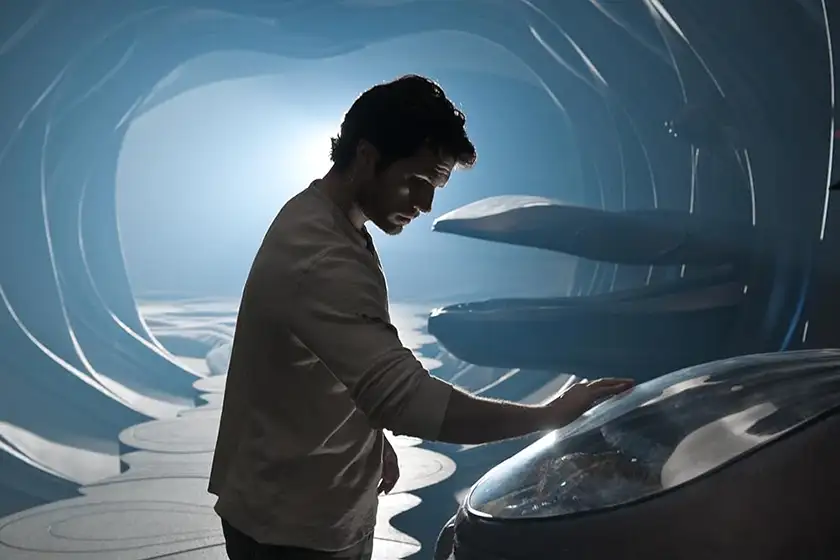
Man of Steel started the DCEU with the origin of Superman/Clark Kent (Henry Cavill), an alien who was sent to Earth after the destruction of his planet. And to say director Zack Snyder got the DCEU off to a divisive start would be like saying The Last Jedi made a few people kinda mad. Superman is one of the most beloved characters of all time, but Snyder sought to take the character in a darker, more serious direction. And he did … to mixed results. Man of Steel is adored by many for its new, more complex take on the Superman universe and impressive spectacle, but just as many people hate its dour tone, poor characterization, and excessive destruction in the finale.
But that was apparently good enough for Warner Bros. to let Snyder keep building the DCEU with his 2016 follow-up, Batman v Superman: Dawn of Justice. The film introduced Bruce Wayne/Batman (Ben Affleck) as someone to oppose Superman for the destruction in Man of Steel, along with other characters who would become DCEU stars in future films. Batman v Superman was utterly panned by critics and fans, and I agree with some of the criticisms. The editing makes it needlessly hard to follow the flow of the storytelling, and character arcs are glanced over or rushed to get to the next scene. (Anyone named Martha will forever suffer from memes because of a certain botched moment.)
But did this mean the DCEU had no potential left? I don’t think so. What I’ll always defend about both Man of Steel and Batman v Superman are their tone, style, and ideas. Gone are the jokes and colorful one-liners of the MCU, and in their place is a feeling of constant dread, uncertainty, and characters treating world-ending threats with as much weight as we would in real life. Not every movie has to be like this, but I always appreciated this approach as a contrast to other superhero films.
As someone who never read a Superman or Batman comic and doesn’t hold these characters in any sacred light, the DCEU was scratching an itch for me in this regard, one that I’d hoped would keep getting scratched while the seams were ironed out. The vision was still there and had a lot of potential. So, even though Snyder didn’t do that great a job so far, he at least put the dominoes in place for Justice League, where all the built-up heroes would come together to face an even greater threat in the big, epic story they deserved …
… Yeah, about that …
STUDIO INTERFERENCE IN THE DCEU
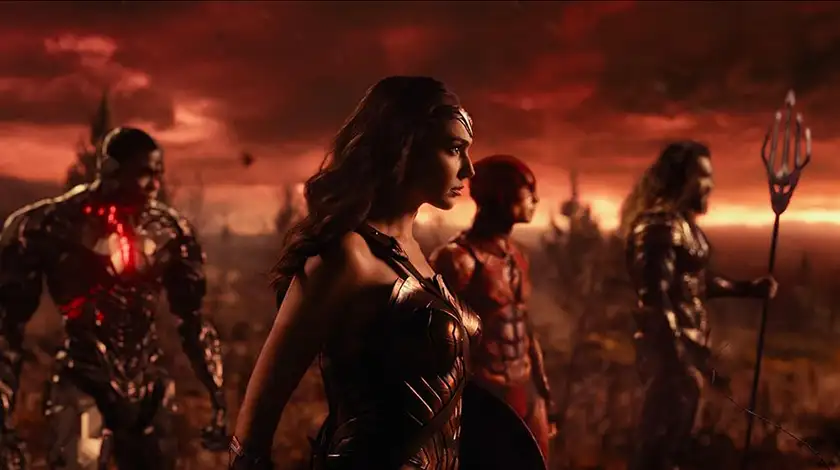
While the first two DCEU films have their own issues, the films that came immediately after are where I believe the DCEU started making mistakes at a system level. After Batman v Superman underperformed at the box office, Warner Bros. wanted to do damage control, and fast. The result was that 2016’s Suicide Squad, a film about DC villains teaming up to save the world, was reshot and chopped up in editing to be made more humorous and jovial than the previous DCEU movies.
While I don’t know how good Suicide Squad would have been had director David Ayer’s vision been left completely intact, the damage this studio interference did was painfully clear even back then. What had major potential as a deranged counterpart to Guardians of the Galaxy was instead turned into an incomprehensibly edited, tonally disjointed imitation of it … to a point where even the guy who made Guardians did a sequel that stood out more!
But David Ayer should count himself lucky when considering what Snyder was going through with Justice League. In addition to him facing a terrible family tragedy, Warner Bros. reportedly tried to heavily meddle with his efforts and water down his core vision. And when Joss Whedon took over for Snyder, that vision was waterboarded. By forcing a more juvenile tone, doing impractical reshoots, and rushing redone CGI, Warner Bros. wasn’t trying to finish what Snyder started; they were trying to make a totally different kind of film. The result was a Frankenstein’s monster of a movie clearly trying to capture the lighthearted success of Marvel’s The Avengers and failing miserably.
Both Suicide Squad and Justice League are evidence that in Warner Bros.’ attempts to sloppily cater to fans’ wishes instead of sticking to the path they’d laid out, they only made the situation worse, resulting in so much wasted potential. Maybe you didn’t like what Man of Steel or Batman v Superman were trying to do. That’s fine. But in trying to please everyone, the studio let the reactions compromise what could have been more successful films and even a successful plan. Had Warner Bros. had the courage to stay the course, trust its filmmakers, and not try to copy the MCU, the early DCEU could have boasted itself as its own unique series, flaws and all, that committed to what it set up and made some people happy.
The one universally loved DCEU film in this era is 2017’s Wonder Woman, featuring Gal Gadot as an Amazon warrior who travels to our world during World War I. That film stuck to its guns, worked as its own thing without studio meddling, and got praised for it. Shocking, right? Even the few who don’t like it still consider it a film and not a mistreated corporate product. I’m not saying an unaltered Suicide Squad or Justice League would have been as great, but they would have been as respectable. Whether it’s a blockbuster or an indie, I ask films to be genuine, but that’s not what the DCEU was doing.
That is, until 2018 …
THE DCEU FULFILLS ITS POTENTIAL
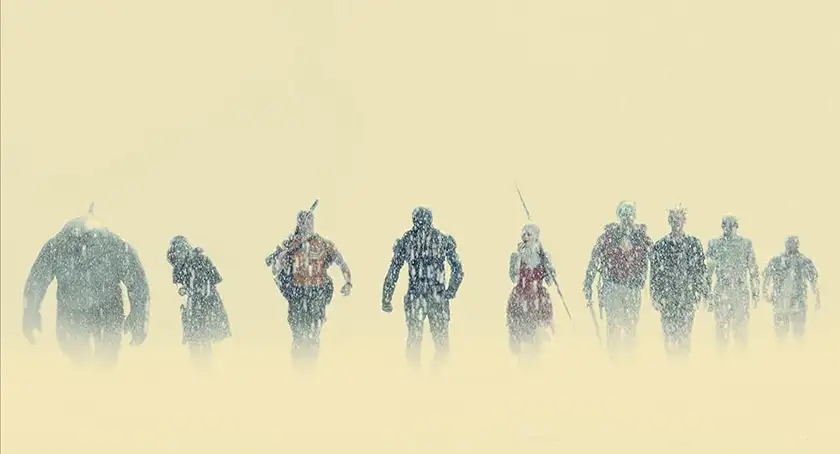
Outside of Wonder Woman, it seemed like the DCEU couldn’t get a surefire critical or commercial megahit on their hands. So, who better to save the day than the most ridiculed superhero in the Justice League: Aquaman. If you went back in time and told … well, anyone that 2018’s Aquaman would be the only DCEU film to gross over a billion dollars, they’d probably laugh hard enough to make the Joker jealous. And though I personally don’t like Aquaman, which tells the story of Arthur Curry (Jason Momoa) reclaiming his title as king of Atlantis, I can see why it was such a big hit.
And clearly Warner Bros. did too, because for a while, it seemed to learn all the right lessons from the film. Aquaman has something that all DCEU films for the next few years would have. Something that finally made them exciting to see: an identity. Under the new leadership of Walter Hamada, the DCEU seemed to forego all attempts at creating one single, long-standing universe with its films and instead just focused on … well, being good. None of the films from 2018 through 2021 feel like attempts to replicate the MCU’s success or please as wide an audience as possible. They feel like attempts to freshen up the superhero genre and liberate audiences from the safe but repetitive Marvel formula.
In 2019 and 2020, we got a wacky family-oriented comedy with a dark edge in Shazam, an R-rated Deadpool-meets-John-Wick female-led action film in Birds of Prey, and the cheesy 80s-style lunacy of the Wonder Woman sequel Wonder Woman 1984. All of these films have defined, memorable, different personalities that stand out, for better and worse, among their superhero brethren. They’re not concerned with directly reacting to the films that came before them … and that’s great! That doesn’t mean the DCEU was aimless to find an identity in these years; it means the identity was to just do whatever it wants.
In 2021, the wins kept coming with my two personal favorite DCEU films. James Gunn jumped ship from Marvel to DC after some trolls tried to cancel him with dated tweets – how’d that work out for ya, fellas? – and gave us the hard-R, bloody, bonkers The Suicide Squad, in which a new set of villains set out to neutralize a mysterious threat in South America. But before that, a fully restored version of Zack Snyder’s Justice League was released, and it completely justified my previous thoughts on Snyder’s films: they made mistakes, but they were going somewhere good. This was the somewhere good. It was a triumph for many and another clear sign of how much potential the DCEU can fulfill when the studio just gets out of its way.
Don’t get me wrong: none of these films are perfect. They’re not among the greatest superhero films ever made. Birds of Prey and Wonder Woman 1984 in particular have some major issues, with the latter being often despised and pointed to as a reason to still hate the DCEU. But like Man of Steel and Wonder Woman, those problems are not symptoms of a faulty studio system. They’re faults in the artists’ visions. That makes them still infinitely more interesting to me than what other studios were churning out at the time. You can not look at the Wonder Woman 1984 script and tell me that Warner Bros. heavily controlled that thing. It was a blank check for director Patty Jenkins, and I love it for that.
WARNER BROS. VENTURES OUTSIDE THE DCEU
Warner Bros. even started funding superhero films that outright had no connections to the DCEU. Joker, an origin story for the titular Batman villain (Joaquin Phoenix), is a comic book movie by technical definition and nothing else. It’s a dark, depressing, slow drama with no spandex in sight, something no other studio would dare to make in the comic book realm. The Batman, which is separate from the DCEU and from Joker, is a harsh, glacially paced detective noir about Batman (Robert Pattinson) investigating an endlessly corrupt Gotham City. Like Joker, it’s the type of film that would be a nightmare for the likes of Marvel and Sony.
There were two major ways these “side” films affected my personal outlook towards the DCEU proper. One was that they spaced out the DCEU installments. Outside of the Snyder Cut of Justice League, the 2018-2022 period only featured six DCEU films and one show, which is sparse compared to the fatigue-inducing onslaught of material currently in the MCU. This stopped me from getting sick of this universe, got me more excited when a new film was coming out, and even gave the films the needed development time to look and feel like finished works.
The other effect was that I started seeing the DC film brand in general as a sign of uniqueness. Like how I associated the Marvel name with safe but solid entertainment for years, I associated the DC name with weird, risky filmmaking. Whether the films were great or okay, coherent or messy, I had faith that they would hold my attention and leave some strong impression on me. They felt different and new, while still having enough mass appeal to find a sizeable audience. You weren’t quite sure what you were going to get with a DC film, DCEU or otherwise.
I remember thinking to myself, “Wow, DC finally found themselves a winning formula!” They could make DCEU films that formed only the loosest cinematic universe, which freed them to stray from the path, and then they could go completely against the grain with their separate films. If you were to ask me right after The Batman came out if the DC films were in a good place, I would have given an emphatic “Yes.” I’d have said they’re realizing their full potential and should stick to what they’re doing. They shouldn’t take it all down out of some desire to still try and go the Marvel route. That would be the worst thing they could do, right …?
… Right …?
CORPORATE SHAKEUPS AT WARNER BROS.
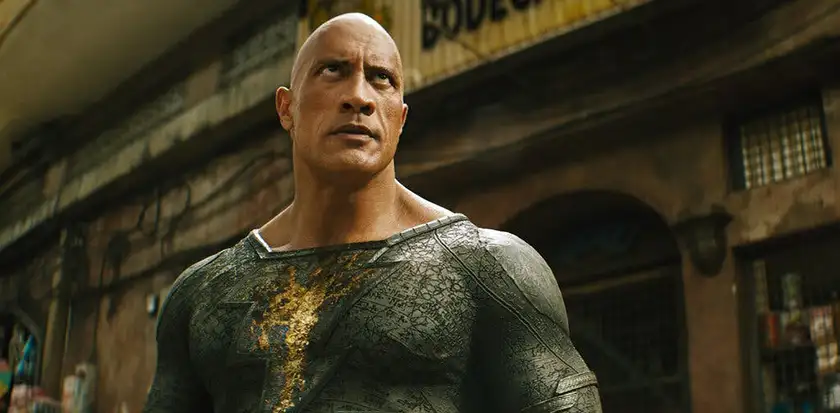
In the 2020s, production crises came from the COVID-19 pandemic, Warner Bros. was shifting gears towards its new streaming service HBO Max, and there was growing confusion as to what was meant solely for a theatrical release and what wasn’t. On top of that, in 2022, Discovery and Warner Bros. merged. Almost immediately after, the DCEU’s continuity was being thrown into question, cast members were confirmed to be returning and then not, films were getting cancelled, and talks of a total reset were making the rounds. Eventually, James Gunn and Peter Safran were hired as the co-CEOs of the new DC Studios, and they confirmed that the DCEU was indeed getting a complete overhaul.
I love Gunn as an artist, so despite the three dreaded letters C, E, and O suddenly in front of his name, I don’t want to dunk on him. But what bothered me were the rising sentiments that the DCEU even needed a reset. It had already course-corrected and was doing perfectly well by just taking everything one film at a time. I didn’t need an MCU-style layout of the next ten years of some grand cinematic universe again. And I certainly wasn’t going to suddenly dismiss the remaining DCEU films as meaningless just because there wouldn’t be any more after.
How exactly did all of the corporate changes at Warner Bros. affect the DCEU films already in production? Well, even after tons of nerds have tried to explain it, I’m still not sure. What I did know at the time is that the DCEU was about to come to an end. So, with a year left before the reboot, I was still rooting for the DCEU to at least get out a final set of ambitious, admirable films and wrap up its run on a high note. I wanted to point to this last group and go, “See? This series still had potential!”
… That’s not what happened.
THE WASTED END OF THE DCEU

In 2023, the DCEU limped to the finish line with some of the most generic, stale superhero films I’ve seen in a very long time: Shazam: Fury of the Gods, The Flash, Blue Beetle, and Aquaman and the Lost Kingdom. Suddenly, a string of films that stood out from the superhero pack was being replaced with film after film that fell squarely inside that pack and felt ten years behind where superhero films should be by now. Not all of them were terrible, but none of them left any lasting, positive impression on me like the previous films had.
The Shazam and Aquaman sequels wash away almost everything that gave their predecessors life, instead telling rushed, uninteresting stories in ways we’ve seen a hundred times already. Blue Beetle has a little something more to it with the perspective of a Latino family, one of whom gets superpowers, but that can’t override its nature as a copy-and-paste origin story. And The Flash, featuring Barry Allen (Ezra Miller) trying to turn back time to save his mother, is an amalgamation of every cheap superhero gimmick that’s been done in other movies. Although it does have babies being put in microwaves, so I guess that’s pretty special.
I don’t think these DCEU films ended up bad solely because of the merger. Most of them had already been in progress before these reboot talks were happening, with The Flash and Aquaman and the Lost Kingdom especially facing difficult productions for years. 2022’s Black Adam, featuring Dwayne Johnson as a vengeful god who’s awakened in the present, had also been in development for years already, and it turned out pretty iffy too. So, it’s possible this losing streak was already going to happen anyway and it’s just a weird coincidence that it happened after the announced reboot plans.
But when I look at the failures the final DCEU films have in common, the biggest standout is a lack of tangible passion or innovation, as if the people behind them either didn’t know how to fit inside the rapidly changing landscape or just wanted to get them over with since the continuity was ending.A whopping four DCEU films were released in 2023 alone. A finished Batgirl film was shelved for a tax break. Reports of constant reshoots driven by the franchise’s uncertain trajectory were popping up, further indicating that the executive mess was bleeding into the filmmaking process.
At the risk of sounding like I’m bending everything to fit a narrative, the pieces all add up to paint a picture of studio disinterest in this final stretch of films. Call me crazy, but when a studio shelves a finished film for tax purposes, I doubt that same studio was giving its filmmakers the resources or time needed to get their films done the way they wanted. Once again, it’s not like the films from the DCEU’s previous era were all fantastic or even good. But they all had a creative spark and sense of fresh freedom that the post-merger films utterly lack.
LOOKING BACK ON THE DCEU

By now, the recurring theme is becoming clear when it comes to how the DCEU wasted its potential: by not running with what it had. In two separate instances, the DCEU had something going but was compromised by studio shenanigans that neglected to realize the possibilities of what was in front of it. In the earlier days, there was demand to outright change what the films were doing at a core level as opposed to trying to improve what they’d already been conceived to be, and the studio bowed to that demand.
But what’s even more frustrating is that in the 2018-2021 era, a new strategy had already been working. The DCEU had it. It was going in the direction I felt it should be going. But then, for reasons ranging from creative to corporate, it stopped committing to that direction, leaving audiences with nothing to really latch onto when it comes to the DC name. There was (false) sentiment among fans that these films didn’t matter because of the supposedly hectic state of the cinematic universe, and we’ve already established that Warner DC will bend and break its own films to give fans what it thinks they want. Why wouldn’t it undercut its films if it thinks they’re what fans no longer care about?
While I’m sad the DCEU couldn’t have kept up with the types of films I was enjoying, it still left behind plenty to look back on fondly. I love a lot of the films we got from them, like Shazam, Birds of Prey, The Suicide Squad, Snyder’s Justice League, and both Wonder Woman movies … yup, even Wonder Woman 1984, weird furry Kristen Wiig and all. And even some of the films that aren’t so hot still have valuable material within them that make me glad they’re out in the world. It’s just a shame that the DCEU started with potential, wasted that potential, finally found its groove, and then squandered it again.
As for the future of DC films, I’ll approach them the same way I currently approach the MCU: looking at each film on its own and deciding whether I want to see it based purely off its quality. I don’t care about how they may all connect or what the road map is; I just want to see interesting movies, one at a time. Having binged a few DCEU films I hadn’t seen to write this piece up, my superhero fatigue has reached an all-time high, and I’m now actively disinterested in anything in the genre unless it looks especially good. Maybe the new DC films will break through that exhaustion. If we’ve learned anything from this series, it’s that nothing is set in stone.
Aquaman and the Lost Kingdom is out now globally in theaters.

